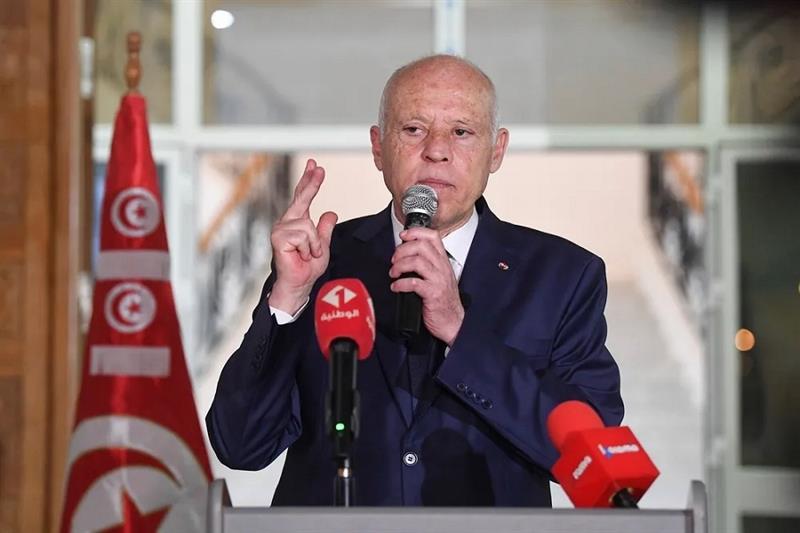FALCON POWERS – Tunisian President Kais Saied called for legal amendments to combat corruption in government institutions and hold “obstructers of government work” accountable, in a reference to the Muslim Brotherhood.
The story dates back to the Brotherhood’s rise to power in 2011, when the organization embedded its elements in all state institutions, administrations, and ministries to implement its empowerment schemes. On Monday, Saied chaired a working session at the Carthage Palace to consider a draft amendment to Article 96 of the Criminal Code (the law).
Saied emphasized that “accountability is a popular demand and that laws must be applied for accountability, not for settling scores.” He ordered the “inclusion of a new provision criminalizing those who deliberately refrain from carrying out a duty related to their job, with the aim of obstructing the public service, as many cite Article 96 of the Criminal Code to refrain from carrying out the duties assigned to them.”

Saied explained that “this project comes within the framework of legislative reforms aimed at achieving a balance between the objectives of the criminal policy in combating corruption, on the one hand, and not obstructing administrative work and achieving its efficiency, on the other hand.” Objectives of the Amendment
The amendment to Article 96 of the Criminal Code, specifically mentioned by Saied, aims to ensure the accountability of those involved in administrative and financial corruption, without leading to the elimination of the spirit of initiative in the public employee, and thus affecting the course of work, according to him.
According to previous data, there are 7,000 Muslim Brotherhood appointments within the ministries and government departments since 2011, which are currently being audited through the examination of academic certificates and party loyalties.
The Tunisian President previously said that “the state cannot continue to be managed by legislation that the people have rebelled against,” in addition to “corruption cannot continue,” indicating that “legislative texts have been tailored and interpreted to serve lobbies.”
Tunisia is witnessing an increase in the phenomenon of corruption, as the ranking published annually by Transparency International in January 2023 revealed that the country ranked 85th in the Corruption Perceptions Index, dropping four places from 2022.


